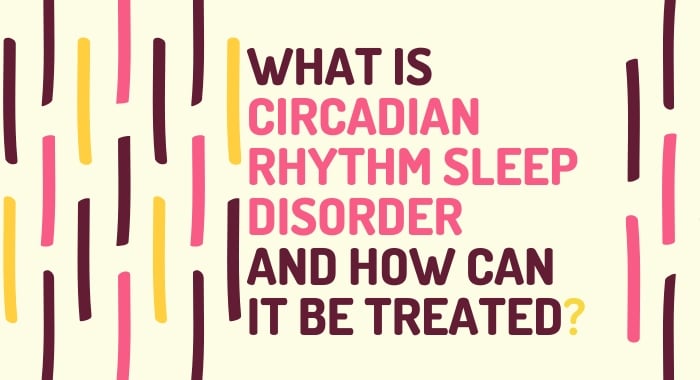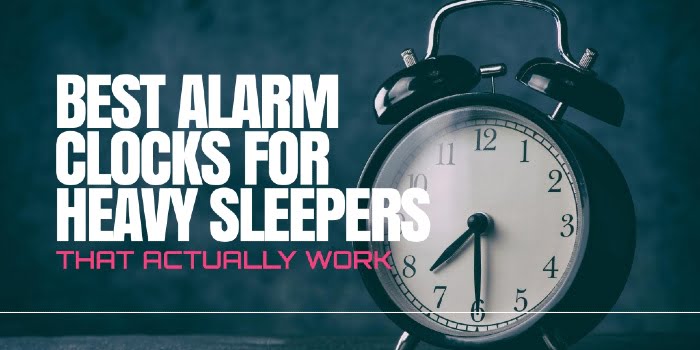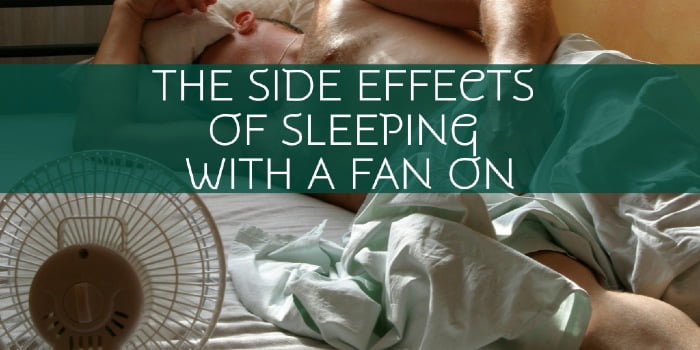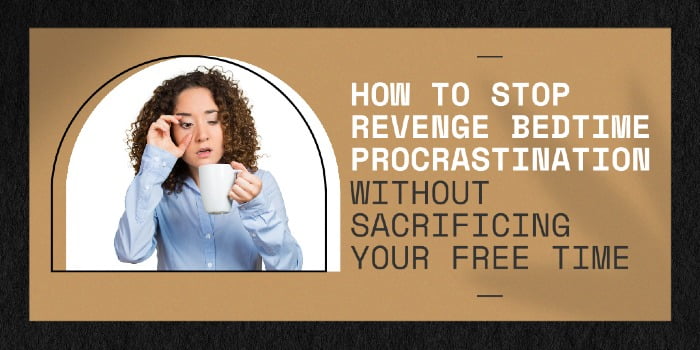The human body is a pretty amazing thing. Everything that we’re capable of is down to intelligent chemical reactions that produce, well, magic.
Everything you do, from taking a step, to picking up a phone or eating is down to very specific chemicals and impulses inside your body. Even going to sleep is a very complex set of reactions. It’s not someone just flicking the ‘off’ switch inside – although if you’re struggling to sleep at night, you may wish it was.
This is why so many sleep disorders happen. If something goes wrong in this chemical reaction, you’ll struggle to drift off. It’s a fine balance and even the slightest thing, like too much caffeine, can throw it off balance.
Circadian rhythm sleep disorder (or CRSD) is one of these conditions that affect your rest. This guide will show you what it is, what causes it and what you can do to help treat it and get a better night’s sleep.
What is circadian rhythm sleep disorder?
A circadian rhythm sleep disorder is a type of disorder that interferes with your natural circadian rhythm. Therefore, to understand it, you need to know how your circadian rhythm works.
Your circadian rhythm is your internal body clock. It’s what controls when you should go to bed and when you should wake up by using the light. Simply, if it’s light, it’s day time and you should be awake. If it’s dark, it’s night time and time to go to bed.
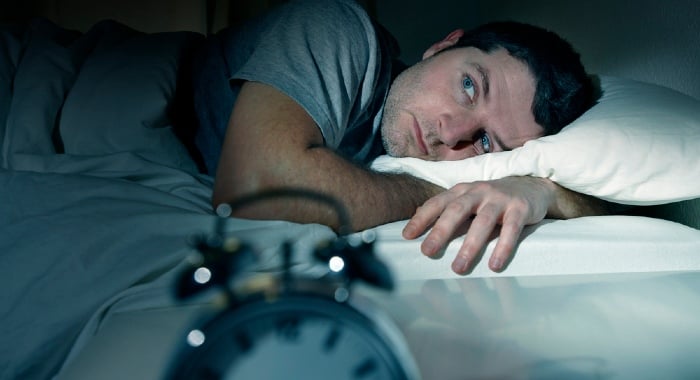
It does this using a hormone called melatonin, which starts the chain reaction your body needs to drift off. If your body clock notices a lot of light, it will send a signal to cut off melatonin supplies and keep you awake. When this light is lost, it will send the signal to start producing melatonin again.
This all happens in a very specific part of your brain called the hypothalamus. This is also where your brain controls and regulates other parts of your body, including temperature, heart rate and blood pressure.
Circadian rhythm sleep disorders are caused when something significantly alters your body clock and you struggle to get the recommended hours of sleep at night.
Those who just prefer to get up early or like to stay up at night don’t have a circadian rhythm sleep disorder. It’s only classed as such when it seriously impacts your rest.
What happens if your circadian rhythm is disrupted?
If something interferes with your circadian rhythm, it will affect what times you go to sleep and for how often. Now, if you’re still getting the hours of rest you need, this is fine. But if you’re not sleeping, you’ll be at risk of:
- Mood swings, including feeling irritable;
- Low mental health or depression;
- Disrupted social schedule;
- Insomnia;
- Trouble concentrating at work;
- Stressed relationships;
- A poor immune system.
In addition, a long-term lack of sleep can also lead to further health risks, such as type 2 diabetes, obesity, cancer and heart conditions.
A lack of rest is never good. In fact, being awake for 24 hours is comparable to having a blood alcohol content (BAC) of 0.10%. This is over the legal driving limit.
What causes circadian rhythm sleep disorder?

There are many things that can cause circadian rhythm sleep disorder. This includes:
- Any external injuries or damage to the brain, such as stroke, head injury, or Alzheimer’s disease.
- Changing time-zones, especially when travelling from west to east.
- Working irregular shifts, such as night shifts.
- Frequently going to bed and getting up at irregular times.
- Blindness or not being exposed to sunlight for long periods of time.
- Certain drugs or medications, amphetamines, beta-adrenergic drugs used to treat asthma or antidepressants.
- Pregnancy.
- Menopause.
- Mental health problems.
- Certain medical conditions, such as congestive heart failure or chronic obstructive pulmonary disease.
What are the symptoms of circadian rhythm disorders?
The symptoms of circadian rhythm sleep disorder depend on which type of condition that you have, but generally include:
- Waking and going to bed at unusual times.
- Being sleepy throughout the day.
- Difficulty concentrating or performing usual activities.
- Feeling irritated or having low moods.
- Feeling nauseous or generally unwell.
- An overreliance on stimulants such as coffee or sleep aids.
The less sleep that you are getting, the worse these symptoms are.
What are the different types of circadian rhythm sleep disorder?
There are a few types of circadian rhythm sleep disorder which can be caused by different factors. These are the most common types that you may be experiencing.
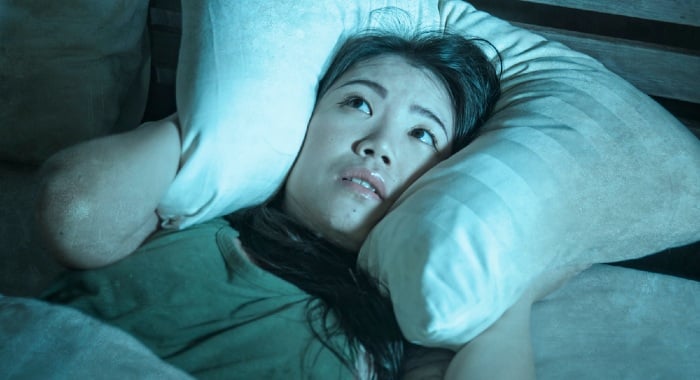
Delayed sleep phase disorder
Also known as delayed sleep phase syndrome, This is where people are generally able to doze, but their body clock has been pushed to unusually late times. This means you could naturally want to go to sleep at 3 am and wake up at 1 pm.
This type of sleep disorder is more common among teenagers and young adults and can cause a problem when they have to wake early for normal routines like work or school. This means they’re not getting enough sleep at night, as they cannot physically fall asleep any earlier.
Advanced sleep phase disorder
This is the opposite of delayed sleep phase disorder and happens when the body clock is too early. So instead of staying up late at night, they’ll naturally wake up at say 3am and go to sleep at 6pm.
Even if they tried to stay awake during the evening, they wouldn’t be able to do it. It would be like asking you to stay awake until 5am. This condition is more common among the older generation.
Non–24-hour sleep-wake syndrome
This happens when the entire length of your body clock is longer than 24 hours. This means that your sleep and waking times gradually shift by 1-2 hours each day, meaning you’ll eventually be sleeping in unusual delayed or advanced sleeping patterns.
This is more common in blind people who can not see the sun to help regulate their cycle.
Irregular sleep-wake rhythm
This disorder is when a person’s circadian rhythm is so disorganised that there is no proper sleep cycle in place. This means that they are sleeping, but over a series of naps in 24 hours.
Although they may be sleeping, the naps mean they aren’t able to cycle through the 5 stages of sleep they need to fully rest the body.
Shift work sleep disorder
This sleep disorder affects people who commonly do shift work. It’s where they have a conflict between their natural circadian rhythm and the time of their shift, meaning they often get 4 hours less of sleep than they need.
Jet lag

This happens when you have travelled across multiple time zones and your circadian rhythm hasn’t had a chance to catch up yet.
This condition usually passes with time.
How do you fix circadian rhythm sleep disorder?
Generally, there are two different types of treatment available for circadian rhythm sleep disorders.
The first is a change in behaviour to naturally get your body clock to align to a normal cycle. The second is using sleep aids and medication. If you are diagnosed with a circadian rhythm sleep disorder, the first step will be to change your behaviour and see if this makes an impact on your sleep.
Exposing yourself to light
Because your circadian rhythm is controlled by light, one of the ways you can try and alter its pattern is by exposing yourself to more natural light.
This could involve going outside and increasing your exposure to light in the day, particularly if you are able to watch sunrises in the morning.
Secondly, you want to limit the exposure to light at night. This means dimming indoor lighting where possible or turning off the lights an hour before you go to bed, so your body has a chance to start producing melatonin to help you sleep better.
Bright light therapy
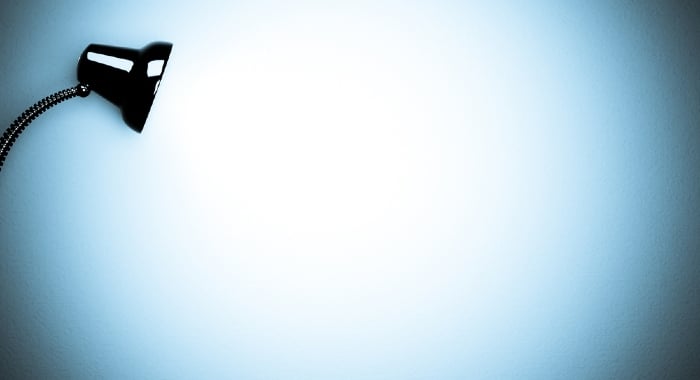
In addition to using natural sunlight or dimming the indoor lights that you do have, you can also try bright light therapy to give your circadian rhythm a reset.
Bright light therapy involves using a highly powerful light (2,000 to 9,500 lux) for one to two hours at certain points of the day. If you want to carry out this therapy, you need to speak to a professional to advise you on the safest and best times to carry out this procedure.
Gradually changing your sleep times
Another strategy to alter your circadian rhythm through behaviour is to gradually shift your sleep times by an hour a night. This is also called chronotherapy.
Making big changes all at once are often doomed to failure. If you’re used to sleeping at 4am every night, you can’t just suddenly move this to 10pm. The difference is too big and you’ll be laying awake for hours, making the situation worse.
Instead, you need to do this gradually, by changing your bedtime by about an hour. So instead of going to bed at 4am, you’ll go to bed at 3am. Then when you’re used to that, you’ll move it to 2am. And so on.
Diet and lifestyle changes
Substances like caffeine and alcohol can keep you awake at night because they block the production of melatonin.
So, if you’re trying to change your circadian rhythm and improve your sleep, you might want to give these a miss, particularly in the evenings.
In addition, you might want to participate in other activities to improve sleep, such as increasing your exercise, keeping the temperature in your room cool and making sure that you’re sleeping on the right type of mattress.
You can find more proven tips to help improve sleep here.
Can medication help improve circadian rhythm sleep disorder?

Yes, there are medications that can help improve circadian rhythm sleep disorders. However, it’s always recommended to try and change your circadian rhythm using natural lifestyle changes first before you take any medication.
There are a few different medication types that can help symptoms, including the following.
Sleep aids
These are short-acting drugs that can help you sleep better at night, but aren’t intended for long-time use. They can help if you’re struggling to sleep at all.
Melatonin
Taking melatonin supplements increase the levels of melatonin in your blood, helping to aid your sleep. The exact dose and time to take them will be decided by your GP, but can help tell release the signals to your body to get ready for bed at the time you need.
Common side effects of melatonin include headaches, abnormal dreams, and nightmares.
Benzodiazepines
These are a class of medications that often prescribed to treat insomnia. They work quickly, but they’re highly addictive and the usual symptoms can return once the medication is stopped.
Nonbenzodiazepine hypnotics are another class of medications that treat circadian rhythm sleep disorders. However, these are not addictive and don’t cause a return of symptoms when users stop taking them.
When to see a doctor about circadian rhythm sleep disorder
If you’re suffering from the above symptoms and are struggling to sleep, you need to try the above lifestyle changes and other sleeping tips to see if any of these have an effect on your night.
If you’re still struggling after this, it’s time to contact your GP for further advice and medications you might need to help get a better night’s sleep.
Looking for more tips to try to improve your night? Discover our range of sleep solutions here.
